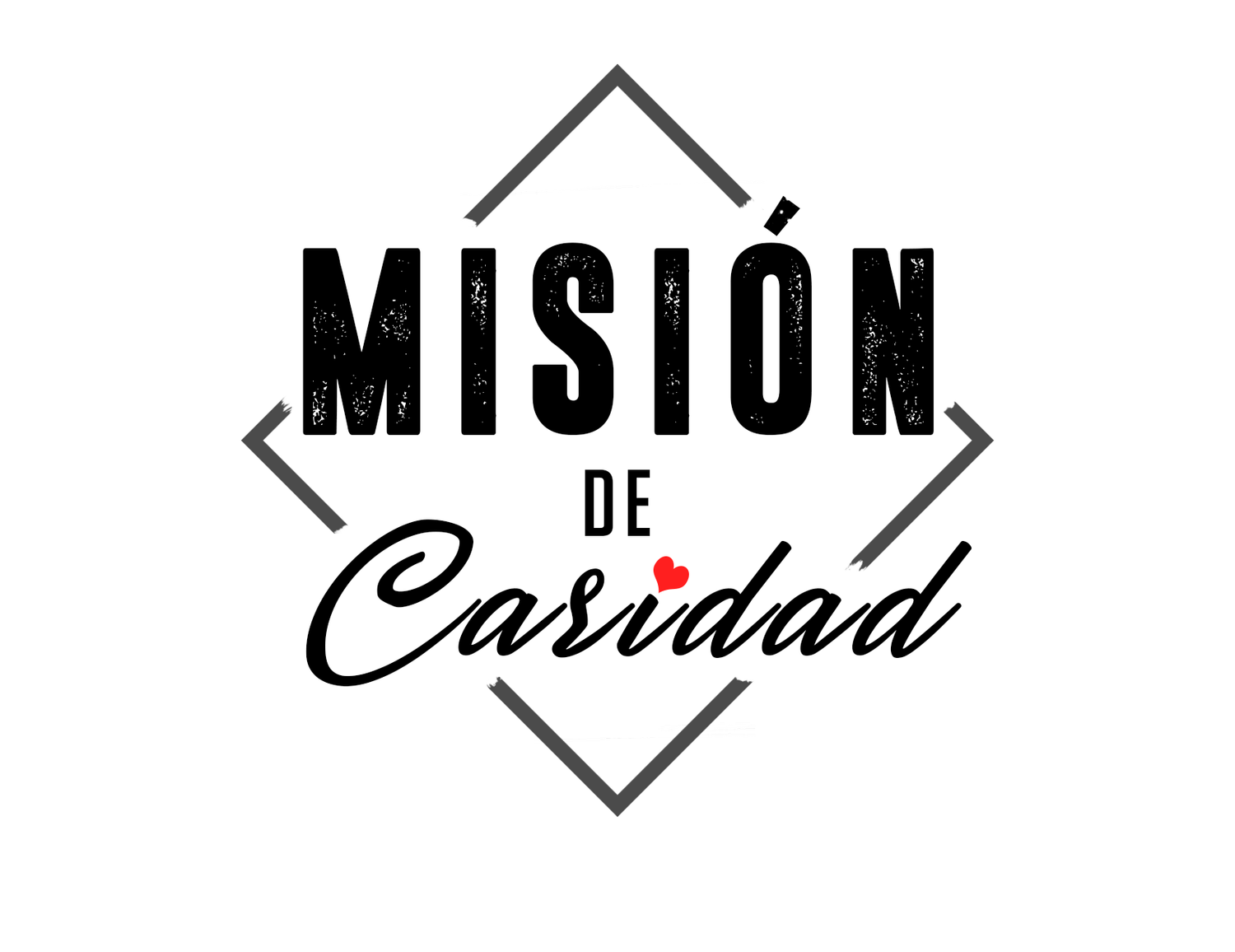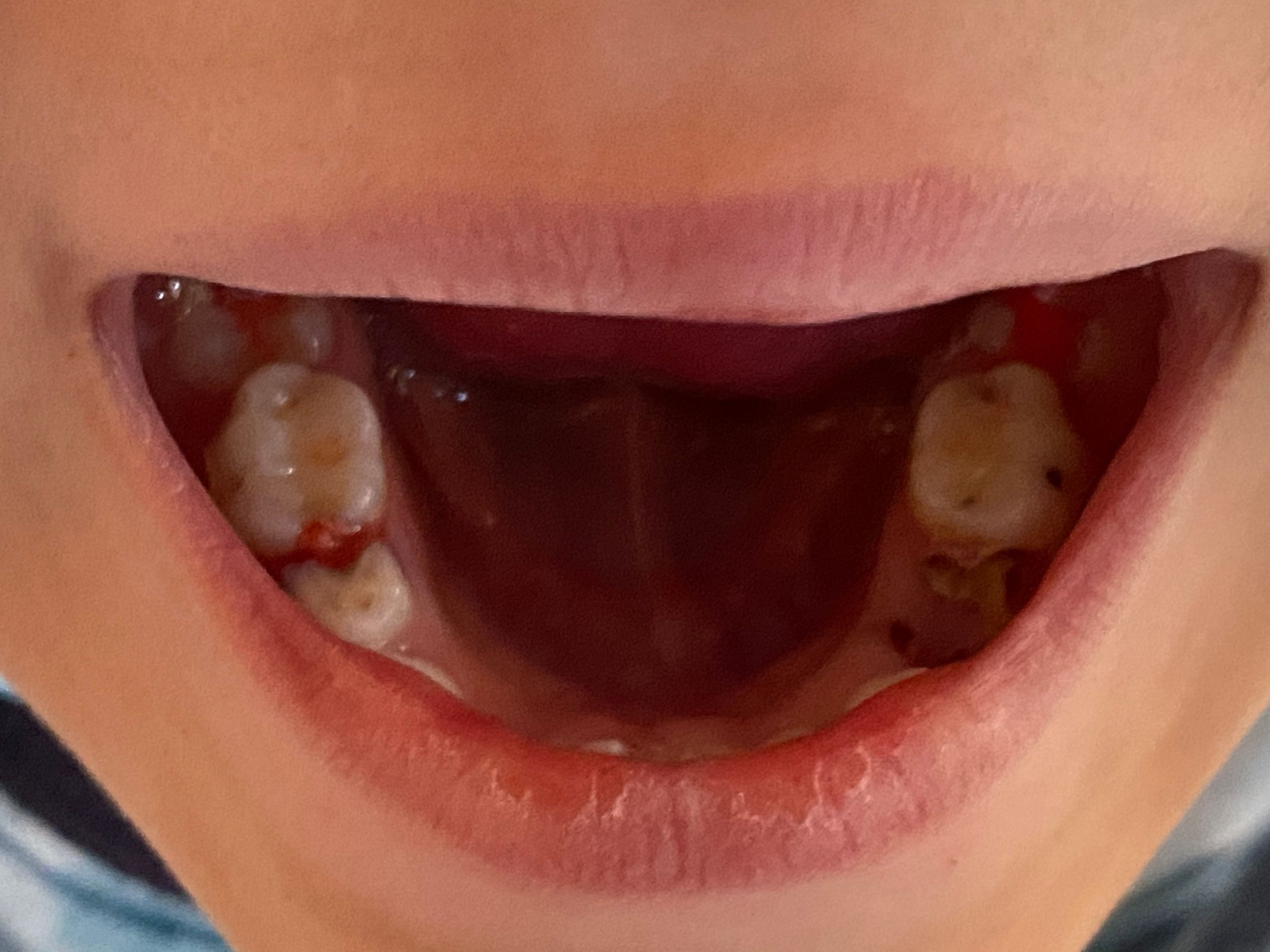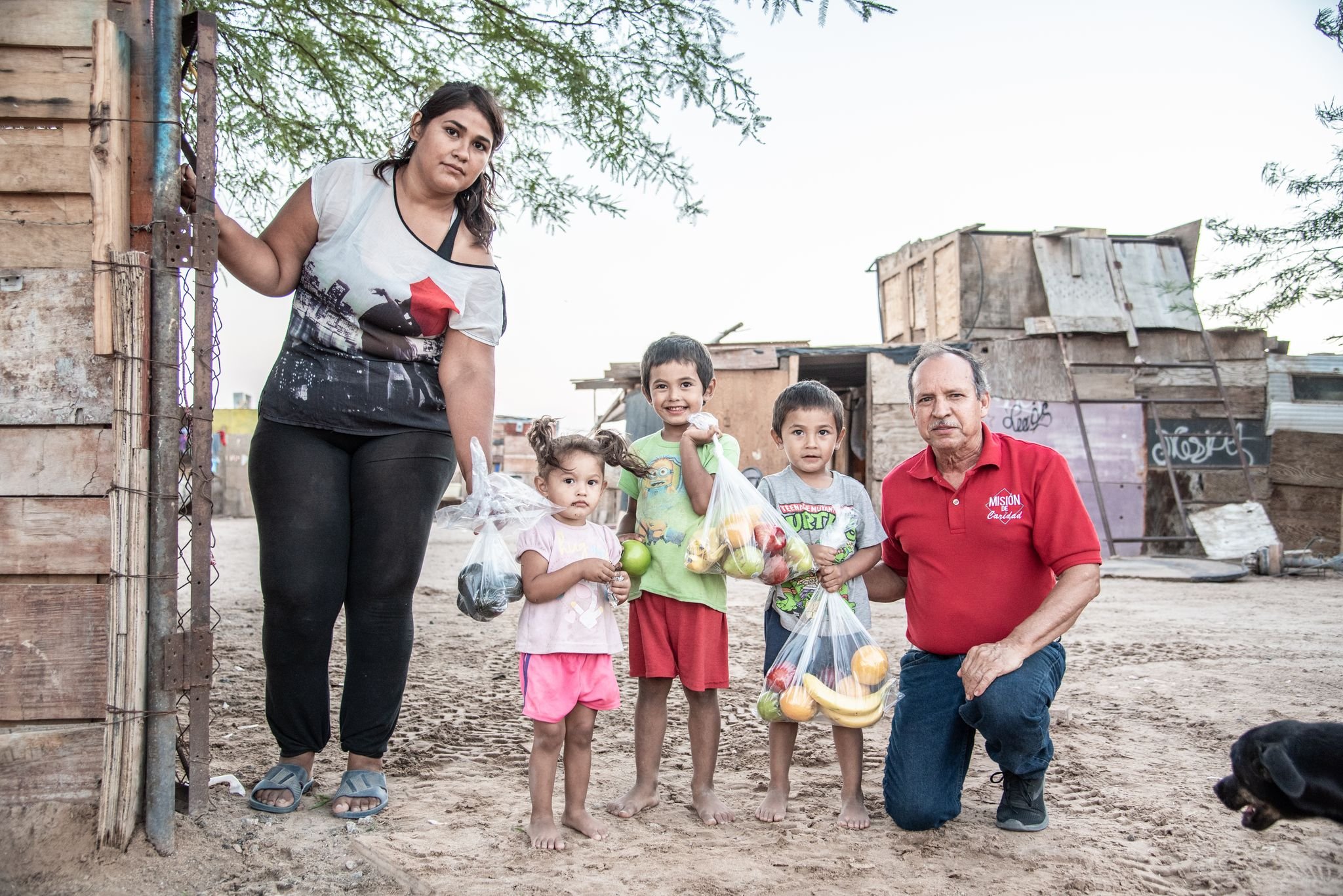Brushing Teeth Is No Simple Matter: The Impact of Poverty On Dental Health
Among the communities served by Misión de Caridad at the US-Mexico border, the vast majority have never received medical or dental care. Misión de Caridad is committed to changing that by providing medical and dental care as well as education about physical health.
This month, we have been focusing on the topic of education. In this article, we talk about the task of educating the communities we serve around dental hygiene.
Getting To The Root
Back in May of this year, we conducted our first medical and dental assessment in our Besitos community. For most children, it was their first dental exam and it was obvious. We had been handing out toothbrushes and toothpaste for months, yet we could tell at the visit that most kids and many adults were still not brushing their teeth.
Ivanna, an aspiring dentist who volunteers with MdC, is teaching kids the right way to brush their teeth.
Our goal in all we do is not just to give things away, but to understand the underlying issues that keep families in poverty. In the case of caring for their teeth, it was not enough to hand them a toothbrush. We realized that continual dental education was essential if we were going to shift the paradigm.
Teeth brushing is a habit that needs to be taught and continually reinforced. In the United States, 13% of the children have untreated cavities. In Besitos, 67% of the kids that attended our dental clinic had cavities that were untreated, and for many of them, their teeth had completely rotted away.
In this photograph, we could see that the tooth had completely rotted away down to the root.
If brushing habits don’t change, these new adult teeth are at risk.
We don’t have running water, so the kids enjoy spitting into our makeshift bucket.
We make brushing fun with activities, games, and stickers.
The serious tooth decay that we observed will only continue and if habits are not changed, will lead to more lost teeth and potential gum disease. This is further exacerbated by the consumption of sugary drinks that are prevalent at almost every meal time.
Kids love receiving their toothbrush and their very own big tube of toothpaste.
Although the vast majority in our communities have never visited a dentist, this is not due to lack of available options. Just 42 minutes away by car is Los Algadones, a popular destination for dental tourism. Americans flock there across the border looking for quality treatment with shorter waiting times and cheaper prices. There are over 350 dentists practicing in Los Algadones today, making it the city with the most dentists per square mile in Mexico and possibly the world.
Dr. Joe Lee examining a patient at our May 2021 health fair.
Dr. Joe pauses for a photo with patients.
Healthy habits will help save these precious adult teeth.
Poverty Is Closely Linked With Poor Dental Health
The real problem is poverty. Studies have shown that lower socioeconomic status correlates to poor oral hygiene practices. People with lower income are twice as likely to have untreated tooth decay and less likely to be able to afford dental treatment. Even in the US, where dental care is widely available, many lower-income individuals cannot afford to treat a toothache. The impact is psychological and financial – having rotting or missing teeth makes it harder to participate in class as a child and even harder to find jobs, especially in the service industry, as an adult.
A disclosing tablet helps to identify plaque on children’s teeth. It is also a very fun activity for children!
Creating a new habit takes practice. MdC’s bi-weekly dental events reinforces the importance of brushing.
Think about how you learned to brush and floss your teeth. You probably had parents who enforced teeth brushing habits while you were still a toddler. They checked that you never ran out of toothpaste and changed your toothbrushes for you. You may have even had a fun special character toothbrush, bubblegum flavored toothpaste and a sticker chart to reinforce your habit. Your first trip to a dentist probably happened before you were 5. Your diet was well-balanced and your favorite TV programs included teeth-cleaning reminders. If you attended preschool for more than 4 hours in the state of Massachusetts, it was required in your program.
There is no “extra money” for health or dental care when it takes everything you have just to put food on the table.
Many of the children we serve do not grow up in this kind of environment where dental habits are reinforced. Their parents are struggling to meet the basic needs of food, clothing, and shelter. They may be aware of the importance of dental hygiene, but do not have the time of resources to make it a priority. Even if someone in the family has a medical emergency, they have to make the choice between going to a dentist/doctor, paying the bills, putting food on the table, or paying rent. Although children may complain of tooth pain, it eventually goes away as the root dies.
A smile worth saving
The sad truth is that the ones who need dental care the most are often the least able to afford it.
Why Is Dental Care So Important For The Communities We Serve?
Oral disease is often indicative of other health conditions and/or an unhealthy diet. Improving oral health could have a positive impact on other areas of health.
The pain and discomfort from tooth or gum disease, can interfere with aspects of daily life.
Teeth are expensive to replace, so most often they are not replaced once they fall out.
Money spent toward preventable dental care can take away from financial resources to invest in good food, better shelter, or education for children.
Caring for oneself physically is a building block in self-advocacy. Even a simple first step in self-care and can lead to greater levels of care in other areas (mental, emotional, spiritual) for oneself.
As more people see the positive impact of better health on their lives, the more they will care for the health of others in their family and community, impacting generations.
Dental health is inseparable from general health as well as socioeconomic flourishing. It is essential that we include the basic building blocks of physical health and self-care in our efforts to bring economic sustainability to women and children living at the border.
Benjamin pauses to snap a photo with one of our families that just received a delivery of groceries with a few extra bags of fresh fruit.
At MdC, we aim to “stand in the gap” by availing ourselves and our resources to provide the missing pieces needed for these communities to escape poverty and achieve their greatest potential. Thank you for your continued support in making these dreams a reality for them.
Please join us in our work!
You can do so by:
Organizing a birthday fundraiser for MdC
Following our social media pages and sharing our posts (links at bottom of page)
In our next article, we will meet Ivana, a volunteer with MdC who has been running our bi-weekly dental classes for children. Stay tuned!
Eunice Wong works at MdC to connect donors and supporters with what’s happening at the US-Mexico border. When not writing awesome blogposts, she can usually be found enjoying a cup of coffee or learning a new language.



















